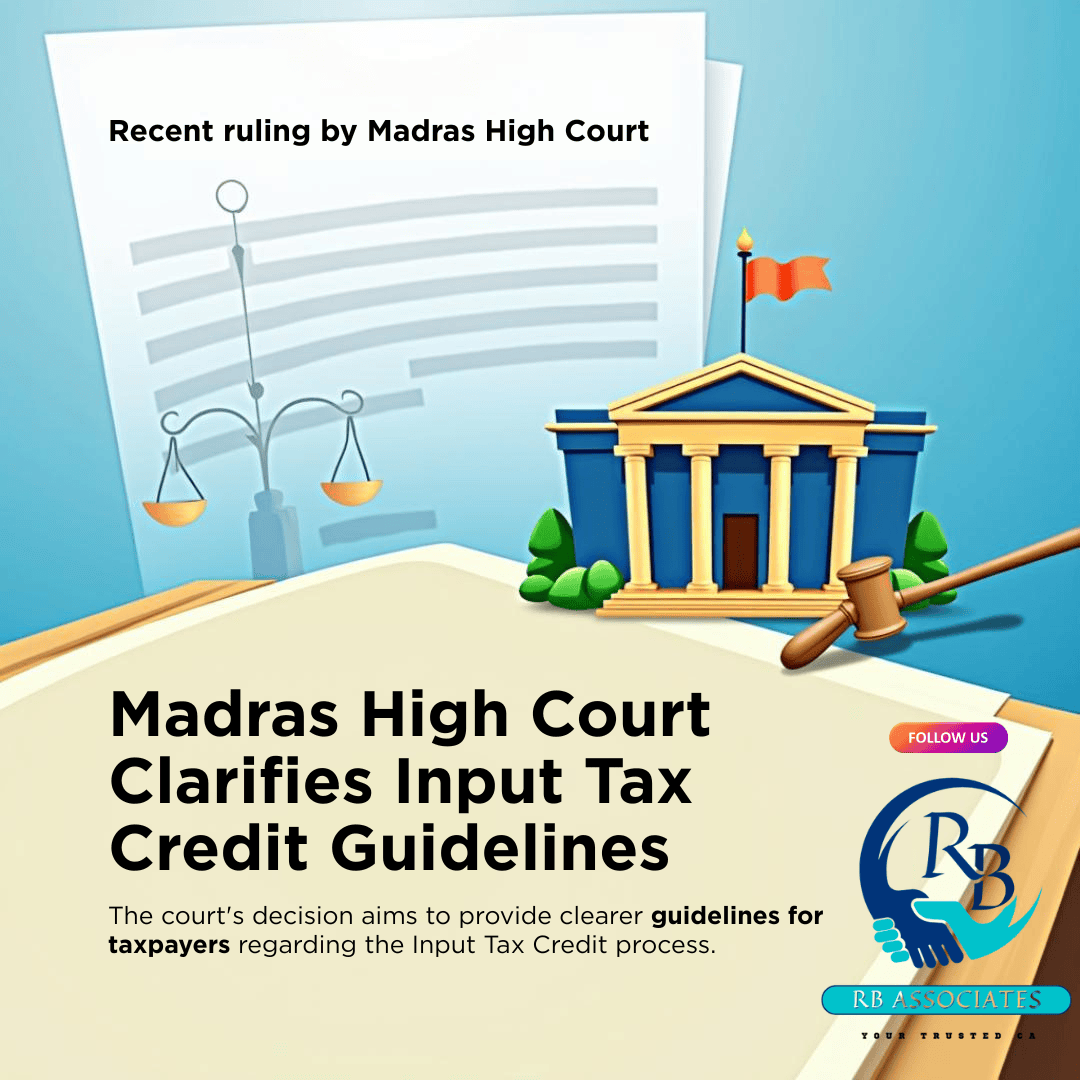The Madras High Court recently made a big decision about Input Tax Credit (ITC). If a supplier doesn't pay the tax they collected, and the buyer can't prove the transaction is real, the ITC can be reversed.

The Case
In the case of *Tvl. Global Offset Printers v. Assistant Commissioner (ST)(FAC)*, the buyer couldn't prove their supplier paid the tax. The court said just showing invoices isn't enough. The buyer has to prove the transaction is genuine. The court dismissed the buyer's petition but allowed them to appeal within 30 days.
Why It Matters
This ruling is important for businesses because it means you need to be extra careful when claiming ITC. If your supplier doesn't pay the tax, you could lose your ITC, which can hurt your finances.
What You Should Do
1. Check Your Suppliers: Make sure your suppliers are paying their taxes.
2. Keep Records: Save all documents related to your transactions.
3. Use Technology: Use software to track your suppliers' tax payments.
FAQs About ITC
1. What is Input Tax Credit (ITC)?
ITC allows businesses to reduce the tax they have paid on inputs (purchases) from the tax they need to pay on outputs (sales).
2. When can ITC be claimed?
ITC can be claimed when the goods or services are used for business purposes, and the supplier has paid the tax to the government.
3. What happens if the supplier doesn't pay the tax?
If the supplier doesn't pay the tax, the buyer may lose the ITC, as seen in the recent High Court ruling.
4. How can businesses ensure they don't lose ITC?
Businesses should verify that their suppliers are compliant with tax payments and maintain proper documentation of all transactions.
5. Can ITC be claimed on all purchases?
No, ITC cannot be claimed on certain items like personal purchases, motor vehicles (with some exceptions), and goods/services used for personal consumption.
Conclusion
The court's decision is a reminder to stay on top of your GST practices. Make sure your suppliers are paying their taxes and keep good records to avoid losing your ITC.

